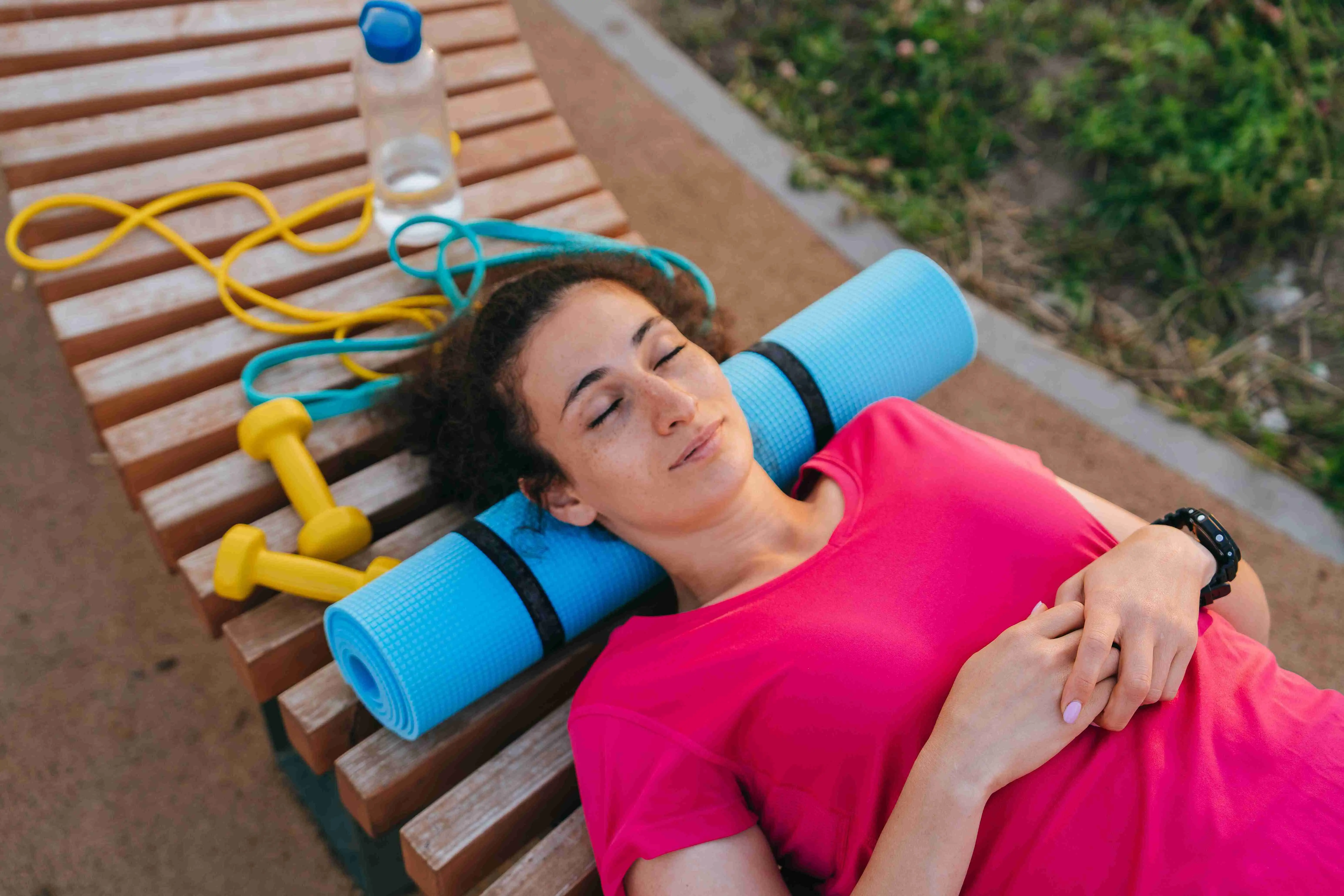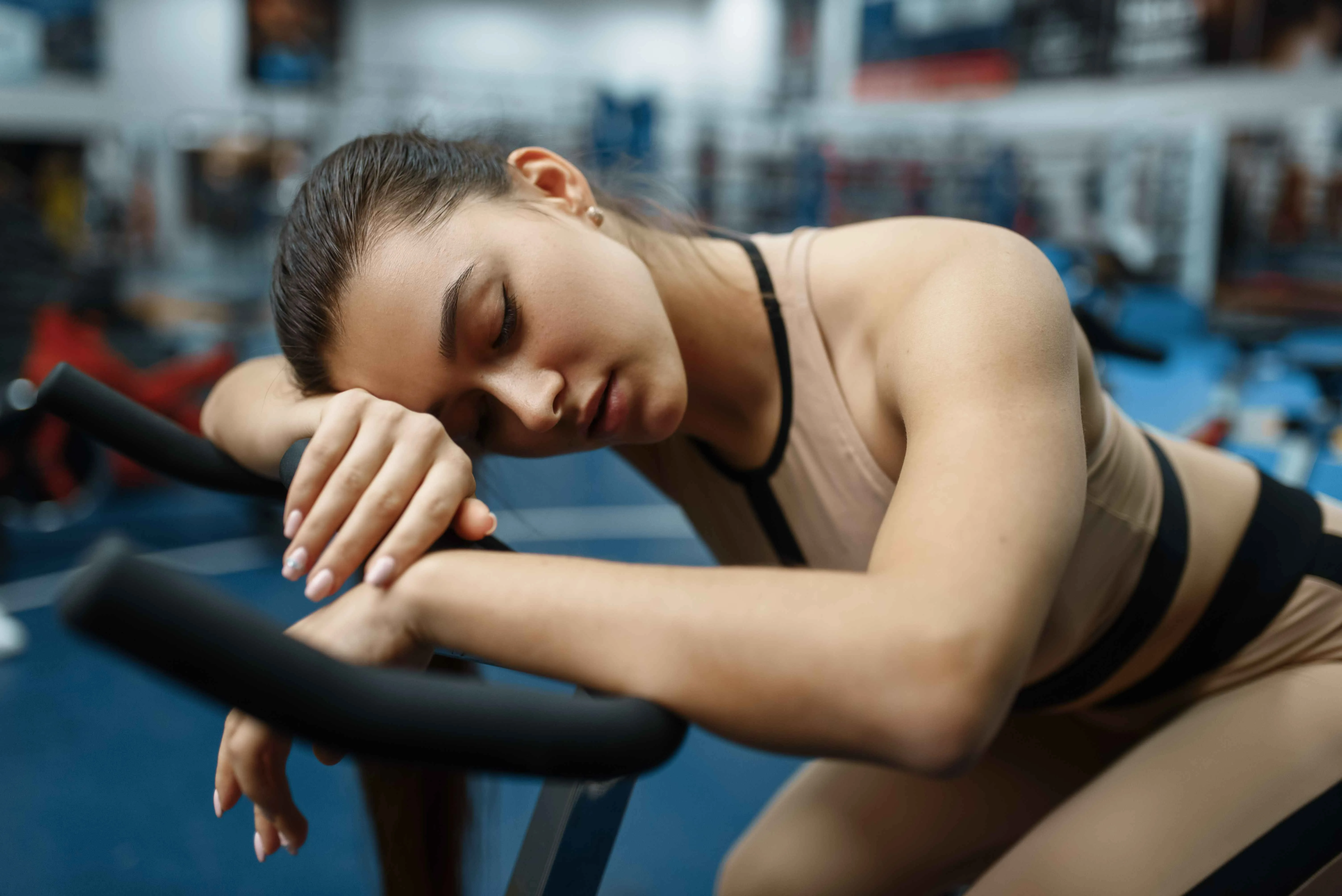One common question that arises among individuals regarding physical activity is whether it is beneficial to sleep after a workout, especially since many people feel tired after a workout. While there is no definitive answer that applies to everyone, understanding the potential benefits and drawbacks can help make an informed decision.
The Relationship Between Sleep and Exercise

Regular exercise is beneficial for both physical and mental health. However, the timing of exercise plays a significant role in maximizing its benefits. We cannot overstate the importance of exercise timing, as it directly influences the wake-sleep cycle and sleep duration.
Importance of Exercise Timing
There’s a very strong connection between exercise timing and sleep, and they directly impact each other. For example, engaging in moderate-intensity exercise during the day can promote better sleep quality at night. When we exercise, our body temperature rises, and this increase triggers a cooling mechanism that helps us fall asleep faster. That is why some people need a nap after a workout and enjoy a deeper sleep.
The release of particular hormones and the depletion of energy reserves in the body are just two causes of feeling sleepy after a workout. Additionally, the body's temperature and heart rate may also play a role in inducing post-workout sleepiness.
What is post-workout sleepiness?
Post-workout sleepiness refers to the feeling of drowsiness or fatigue that occurs after engaging in physical exercise. Many people experience it frequently, especially those who engage in intense or prolonged workouts.
The body's energy reserves running low and the release of specific hormones are just two of the causes of this sleepiness. Additionally, the body's temperature and heart rate may also play a role in inducing post-workout sleepiness.
Pros and Cons of Sleeping After Exercise
While it may be tempting to sleep after a workout, and it certainly has its benefits, there are also some drawbacks to this practice. It's crucial to understand the benefits and drawbacks of sleeping after a workout in order to make the most of them and achieve the best possible sleep experience.
Pros
- Energy Replenishment: When we exercise, our bodies use up energy stored in the muscles and liver. This can leave us feeling tired and depleted. However, by getting a good night's sleep after a workout, our bodies have the opportunity to restore and replenish this energy. During sleep, our bodies go into a state of rest and repair, allowing for the restoration of depleted energy stores.
- Improves Memory: Sleep plays a crucial role in the consolidation of memories, so when we exercise, our brains release chemicals that enhance memory formation. By sleeping after exercising, we allow these memories to be solidified and stored effectively in our brains. This can lead to improved cognitive function and enhanced memory recall.
- Muscle Recovery: When we engage in physical activity, our muscles undergo stress and micro-tears occur. It is during sleep that our bodies go through a muscle repair process. The growth hormone is released during sleep, which aids in tissue repair and muscle growth. By getting enough rest after a workout, we allow our muscles to recover efficiently, leading to improved strength and endurance over time.
- Improved Performance: When we engage in physical activity, our muscles are put to work and may experience strain and fatigue. By allowing our bodies to rest and recover through sleep, we allow our muscles to repair and rebuild themselves. This can lead to increased muscle strength and endurance, ultimately improving our overall performance during future workouts or physical activities.
- Stress Relief: Exercise is known to release endorphins, which are natural chemicals in the brain that promote feelings of happiness and well-being, and by giving ourselves ample time to rest and sleep after exercising, we allow our bodies to recover from physical stressors and reduce overall stress levels.
Cons
- Excessive Daytime Sleepiness: One of the main drawbacks is excessive daytime sleepiness. When we engage in physical activity, our bodies release endorphins and adrenaline, which can make us feel energized and alert and not able to sleep after a workout. If we sleep after exercising, our bodies may still be in an active state, making it difficult to fall asleep and leading to feelings of grogginess during the day.
- Disrupted Sleep Schedule: Our bodies have an internal clock called the circadian rhythm, which regulates our sleep-wake cycle. When we exercise close to bedtime and then go to sleep right away, it can throw off this natural rhythm. Our bodies may not have enough time to cool down and relax after a workout, making it harder to fall asleep and stay asleep throughout the night.
- Delayed Recovery: When you exercise, your body goes through a series of physiological changes, such as muscle damage and inflammation. These changes are necessary for your muscles to repair and grow stronger. However, if you go to sleep right after working out, your body's recovery process may be delayed.
Tips for Sleeping After Exercising

After a rigorous workout session, it can sometimes be challenging to wind down and get a good night's sleep. However, following a few simple tips can help create a sleep-conducive environment and ensure a restful night after exercising.
Cool Down Properly
It is crucial to cool down properly after a workout. This means gradually slowing down your activity level and stretching your muscles. Cooling down allows your body to return to its resting state and helps prevent muscle soreness.
By taking the time to cool down properly, you are signaling to your body that it is time to relax and prepare for sleep.
Time Your Exercise
It is important to time your exercise appropriately. Exercise too close to bedtime can increase your heart rate and body temperature, which is why some people can't sleep after a workout. We recommend finishing your workout at least two hours before your planned bedtime. This gives your body enough time to cool down and return to its normal state.
Hydrate
Proper hydration is key to promoting good sleep after exercise. Sweating during a workout can lead to dehydration, which can interfere with sleep quality. It is important to replenish lost fluids by drinking water before, during, and after your workout. Staying hydrated will help regulate your body temperature and promote relaxation, making it easier to fall asleep.
Create a Sleep-Conducive Environment
The ideal sleeping temperature is around 60–67 degrees Fahrenheit, so adjusting your thermostat accordingly can aid in falling asleep faster. Using blackout curtains or an eye mask can block out any unwanted light sources, promoting deeper sleep.
Practice Relaxation Techniques
Practicing relaxation techniques can greatly aid in achieving restful sleep. Deep breathing exercises, in which you inhale deeply through your nose and exhale slowly through your mouth, are an effective method.
This helps to slow down your heart rate and relax your body. Another technique is progressive muscle relaxation, where you systematically tense and release each muscle group in your body.
Take a Warm Shower
If you're unable to sleep after a workout, taking a warm shower might help. This not only helps relax the muscles but also raises the body temperature, promoting a quicker transition into sleep. Allowing the body to cool down after the shower signals to the brain that it is time to rest.
Learn More: Bedtime Routine Guide
FAQs
Is it good to sleep after a workout?
There is a common misconception that going to sleep immediately after exercising is wrong or unhealthy. However, this is not necessarily true. While it is generally recommended to allow your body to cool down and relax after a workout, there is no harm in going to sleep right away if you feel tired, so how your body reacts to sleep after a workout dictates if it is okay to sleep after a workout or not.
How does exercising enhance sleep?
When we engage in physical activity, our body temperature rises, and as a result, our body produces more adenosine, a chemical that promotes sleep. In addition, exercise helps to reduce stress and anxiety levels, both of which can interfere with sleep.
How long should I sleep after working out?
After a workout, it is important to prioritize sleep for optimal recovery. The recommended amount of sleep for adults is typically between 7-9 hours per night. However, the amount of sleep needed after exercising can vary depending on the individual and the intensity of the workout.
How long should you wait to sleep after working out?
It is recommended to wait at least 2 hours before going to sleep after working out. This allows your body temperature and heart rate to return to normal levels, ensuring a restful sleep.
When should I talk with a professional about post-workout sleepiness?
If you consistently experience post-workout sleepiness, it may be worth speaking with a professional to determine the underlying cause. While it is normal to feel tired after a workout**, excessive sleepiness** could be a sign of an underlying health issue. If you find that your sleepiness is interfering with your daily activities or persists for an extended period, it is advisable to seek the opinion of a healthcare provider.
Conclusions
Feeling tired after a workout is very normal, excessive sleepiness or prolonged fatigue may indicate underlying issues such as overtraining or inadequate recovery time. Therefore, it is important to listen to your body and give it the rest it needs to recover properly.
Karen Barnard
Karen is a Human Movement Science expert and a certified sports nutrition and massage therapist. At Sleepiverse, she combines her passion for human movement science and sleep health to educate herself and her readers about healthier sleep. In addition to writing articles, Karen manages a fitness studio offering private training, athletic conditioning, and sports massage therapy. She focuses on providing people with a holistic environment for people to reach their health goals, often incorporating stretch therapy to promote mental tranquillity and help people improve their sleep.


